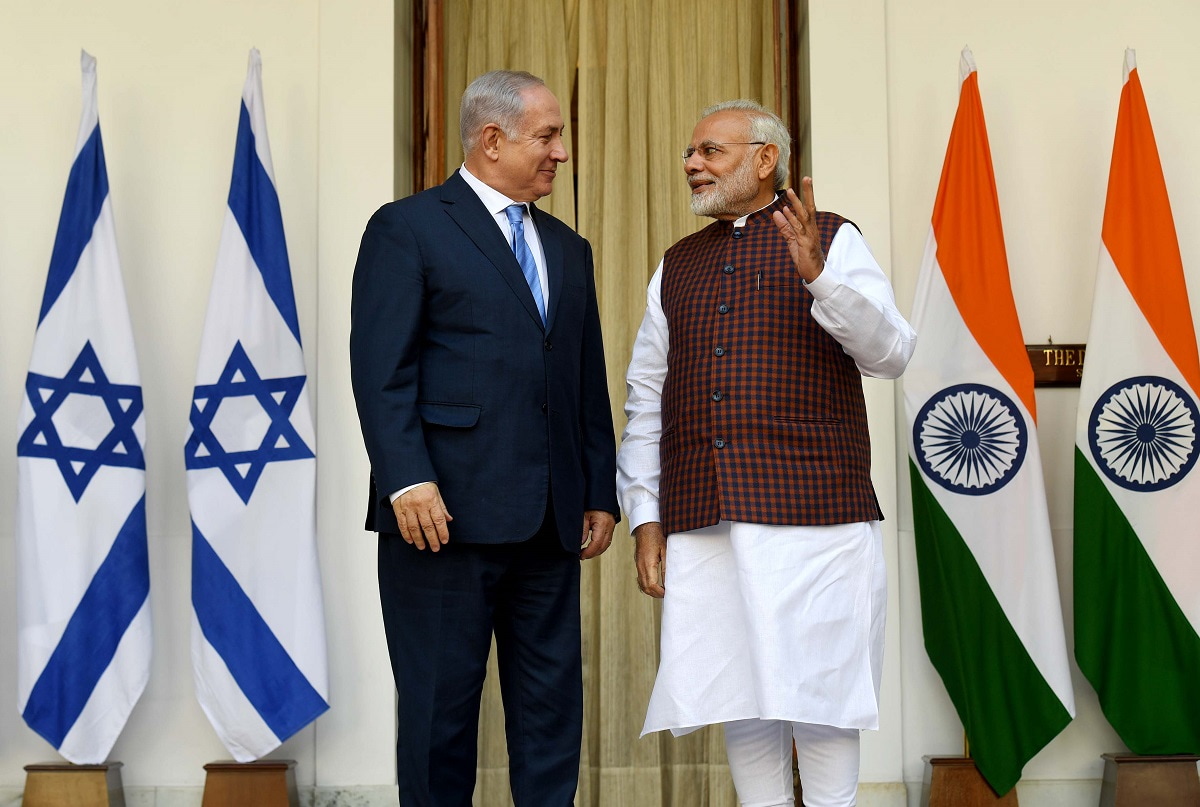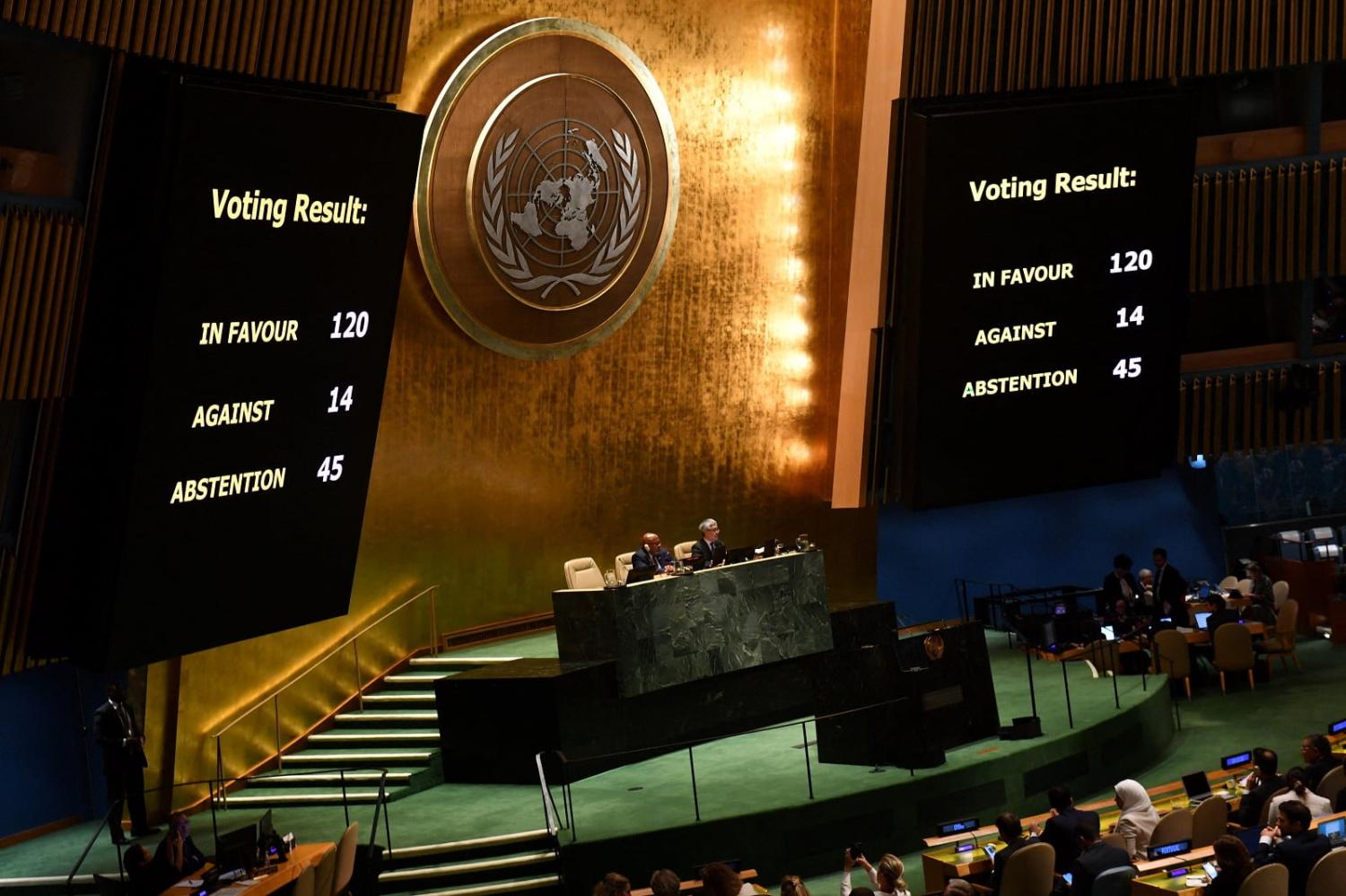India has identified the disparate grouping of nations coined the “Global South” as a useful vehicle for advancing its foreign policy objectives. New Delhi’s hosting of the Voice of the Global South Summit in January helped give a sense of tangible form to the fledgling concept.
This made New Delhi’s decision to abstain on the United Nations General Assembly (UNGA) resolution last month calling for an “immediate, durable and sustained humanitarian truce” in Gaza all the more conspicuous.
For if there is one issue that gives a sense of unity to an otherwise disunited and nebulous grouping, it is public support of Palestinians.
Global South heavyweights Brazil, Indonesia, South Africa and the vast majority of Arab, African and Latin American countries voted in favour of the UNGA resolution. So too did China, which, though not so defined by India, considers itself a natural member of the Global South.
India’s abstention and the very supportive comments made by Prime Minister Narendra Modi following his call with Israeli Prime Minister Benjamin Netanyahu in the aftermath of 7 October Hamas’ attacks goes against the grain of a long history of support for the Palestinian cause.
India became one of the first non-majority Muslim countries to recognise Palestine as a state in 1988. After voting against the original 1947 UN Resolution to establish Israel, India took until 1992 to fully normalise ties with Tel Aviv. As recently as 2017, India voted against former US President Donald Trump’s recognition of Jerusalem as Israel’s capital.
Ironically, India’s strong identification with the original Non-Aligned Movement (NAM) – the clearest antecedent of today’s Global South – drove its almost reflexive support of Palestinians. Then as now, most NAM nations saw voting in support of the Palestinian cause at the United Nations as a totemic principle of the movement.

Yet in many ways, India’s break with history is a long time coming, merely giving public expression to a range of domestic, economic and strategic considerations.
Prime Minister Narendra Modi’s Hindu nationalist Bharatiya Janata Party (BJP) has proved a much more convivial partner for Israel than the previously dominant Indian National Congress Party.
Although Modi values India’s strategic promiscuity, his government is much less hidebound by traditional Congress foreign policy precepts, such as wariness of security ties with the United States and allies.
The extent to which shared ideology is driving the India–Israel relationship is probably overstated. Nonetheless, the current governments of Israel and India clearly espouse majoritarian and religiously infused, albeit quite distinct, variants of nationalism.
This commonality dovetails with a sense of affinity resulting from both countries facing threats from Islamist-inspired terrorism. India’s External Affairs Minister, the indefatigable Subrahmanyam Jaishankar, pointedly justified his country’s abstention on the ground that Indians are “big victims of terrorism”. India was loath to set a precedent that could see its response to a future terrorist attack internationally censured.
These factors have made it much easier for BJP governments to have a more public-facing relationship with Israel. It was under a BJP government that then Israeli Prime Minister Ariel Sharon became the first Israeli leader to visit India in 2003. Modi returned the favour in 2017 and hosted Prime Minister Benjamin Netanyahu in 2018.
Closer military and economic ties have followed and further buttressed the relationship.
Arms sales have grown ever since former Prime Minister and BJP co-founder Atal Vajpayee accepted Israeli weapons during the 1999 Kargil War. Defence exports are now worth around US$2 billion annually, making India Israel’s largest defence market. Intelligence is another close area of cooperation.
India and Israel are both members of I2U2, the so-called “Middle Eastern Quad”, which also comprises the United Arab Emirates and the United States. The now almost certainly delayed ambition to connect India to Europe via the Gulf and Israel, also points to an ambitious geoeconomic agenda.
Implicit here is how Arab–Israeli normalisation through the Abraham Accords has given India – reluctant to upset the apple cart with its crucial Gulf partners – greater confidence to engage Israel.
With the humanitarian catastrophe in Gaza becoming harder to ignore, India has acted to paper over differences with the Global South. New Delhi recently announced humanitarian aid for Gaza and reiterated its support for a two-state solution.
Even if China has undoubtedly accrued some political capital through its more overtly pro-Palestinian stance, shrewd diplomacy will probably be sufficient to contain the damage to India’s Global South bona fides. From UN reform to climate change compensation, there are still an array of issues where India can plausibly claim a leading voice.
In the Arab World, India will be aided by the fact that few if any governments have much sympathy for Hamas, or have paid particular attention to the Palestinian file in recent years.
The more enduring legacy of India’s vote may be to demonstrate the inherent limitations of the Global South concept, despite its evident utility in capturing the attention of Western capitals.
As India has done in its relationship with Israel, states tend to prioritise tangible interests over abstract political constructs. In having its own distinct and idiosyncratic national interests, India is no different from the 125 countries that attended its seminal summit back in January.

